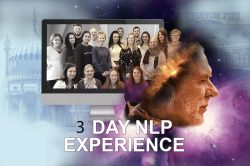This excerpt is taken from part of DR. Paul Burr’s series on Selling and Sales performers.

…….Motivation
Most salespeople are motivated to win, especially when the selling is relatively easy. Likewise most are motivated by earnings and win bonuses. Some are motivated by advancing their career.
What motivates top salespeople? The answers from my research fall into three categories:
1. “To be the best I can be” or “…recognised as the best salesperson there is” – not only the best in terms of results but the best at selling too (outcomes + journey).
2. “To deliver customer value above and beyond that expected.”
3. “To create a legacy so that I am renowned for the value I bring to customers and my organisation’s business.”
In all three categories, the top performers are motivated by being (and being seen as) excellent. ‘Moderates’ talk of winning and earnings but talk less of personal excellence.
Confidence
I worked with a 26 year old CEO of a recruitment firm who had a good reputation for hiring confident as opposed to arrogant people. I was asked to model how he went about the task. Our conversation went something like this:
Me: “How do you differentiate between a confident person and an arrogant one?”
CEO: “Well, I’m not sure; I just get a ‘feeling’.”
Me: “Describe that ‘feeling’.”
CEO: “Well you just sort of know, don’t you? It’s something you sense….. a gut feeling.”
Me: “Okay, imagine you have an arrogant person to your left and a confident to your right. What’s the difference between them?”
CEO: “The confident person asks questions; the arrogant person doesn’t. The confident person probes for where they feel they’ll bring value to the organisation. They look to find out if they will enjoy the role. They seek opportunities for themselves to grow in the role. The arrogant person takes a position that they have the knowledge and wisdom suitable for the job and makes no effort to see how well they’ll fit in.”
Top salespeople exude confidence by the quality of questions they ask as well as the articulacy by which they convey reassurance. (For a framework with which to construct quality sales questions, refer to the INCREASETM model in Number 1 of this series of business articles, Quick Guide – How Top Salespeople Sell.)
Competence
If you stacked all the sales training and development materials in the world on top of one another, you’d probably build a mountain higher than Mount Everest. So I’ll attempt to put a different slant on competence by giving you a customer’s perspective. (For completeness, Appendix 1 lists the skills and knowledge demonstrated by top salespeople at, and away from, the customer interface.)
A corporate salesperson spends, on average, 15% of their time speaking directly to a customer. Ergo, 85% of the time, they apply their skills and knowledge to researching, developing and planning; how to be more effective during the ‘15%’ customer interface window when the occasion arises.
Top performers prepare themselves, intellectually and psychologically, to be at their peak when speaking to the customer. They develop appropriate skills and knowledge (the intellectual exchange) and they also prepare themselves to be in the right frame of mind and body (the mental and emotional exchange) with the customer.
Being perceived as ‘competent’ by the customer requires you to be:
1. Prepared: with insightful questions to ask and have answers to potential customer questions, including facts, data and logic so that your proposals are both visionary, ‘grounded in reality’ and hopefully compelling
2. Clear about the outcomes: What do you want to achieve in the meeting both in terms of the task-in-hand and your relationship with the customer (e.g. engender trust). It’s also being very clear about the outcomes the customer might want to achieve, in terms of their task-in-hand and from their relationship with a supplier like you.
Most of us prepare ‘box 1’ before a meeting. Many ‘moderates’ omit boxes 2 and 3 above from their preparatory work. Most salespeople miss out box 4 altogether – often because of a lack of self-belief and sometimes unconsciously. They don’t visualise themselves in a picture working closely with the customer.
3. In the right frame of mind: If you were to prioritise the three factors: Prepared, Clear Outcomes and Frame of Mind – which order would you place them?
Exercise: Allocate three weighting percentages (that add up to 100%) against Prepared, Clear Outcomes and Frame of Mind respectively – in terms of how important they are to being successful during (not before) a meeting.
The most important thing you take into a meeting is your frame of mind.
This statement often raises a few queries. It doesn’t say that you shouldn’t prepare diligently for a meeting. What it says instead is – the moment the meeting starts, the single most important factor that will determine your success is your frame of mind. You may well feel you have to do a significant amount of preparation to get yourself ‘centred’, for example. BUT it’s not the process the meeting follows that determines success the most; it’s you, your frame of mind and the thoughts that engender that frame of mind.
Specifically, whatever thought you process in your conscious mind passes straight into your unconscious mind and merges with any ‘subconscious programmes’ running there. The aggregate information is then passed directly to your DNA which vibrates at different rates in accord with your temperament. That is:
The vibe you put out determines your success.
I coached a very successful salesperson who never felt at her best in front of a CEO customer. It took a wee while for us to discover a subconscious programme she’d developed from her authoritarian parents, created by a ‘single significant emotional event’ when she was three years old. Once she ‘released’ this programme, her faith-in-self in front of CEO’s increased significantly. Her sales soared.
Research by scientists (e.g. The Biology of Belief, by Dr Bruce Lipton and The Genie in your Genes, by Dr Matthew Dawson) demonstrates the subliminal communicative functioning power of DNA between human beings which can be harmonious (I prefer the term, ‘resonant’) or out of tune (dissonant) – and at its extreme, disruptive.
Allow me to define ‘being competent’ as not only having the capability to demonstrate requisite skills and knowledge at the customer interface, it’s also about being competent at preparing yourself to be at your peak (see Appendix 2), to achieve the gravitas (sometimes called ‘traction’) you seek.
Author’s note: gravitas is something we can all achieve; it’s a result not a gift privy to a chosen few. Only 15% or so of salespeople achieve the ‘customer gravitas’ they seek, hence this book!
Let me add, the competence that customers attribute to you will also include an element of the perceived competence of the solutions you bring to the table, i.e. an acknowledgement of the potential of your solution’s value proposition. Put another way, if the customer has little faith in what you’re selling, even though they value your personal contribution, to what degree will you be invited to participate in the decision making process?
We’ve covered two of the three ‘Cs’ in the E=MC3 (Effectiveness = Motivation x Confidence x Competence x Curiosity) equation. A salesperson not only has to be competent in following ‘top sales processes’ (and have potentially ‘competent’ solutions); they need to be confident in their ability and motivated to follow those sales processes too. And still there’s one further factor that determines how effective you are (by seeing what’s really going on), a heightened sense of…
Curiosity
Top salespeople are unstintingly curious. For example, they love to be coached. They are very willing to learn how to become more effective at selling.
Top performers focus on working smarter, not harder, than ‘moderates’
You might ask, “Curious about what?” Answer: “Everything!”
Top salespeople probe below the surface of what’s going on – especially when forging business relationships. Like a metaphorical iceberg, they acknowledge that you only see about 15% above the surface; the obvious facts and logic by which a customer makes a decision. But they don’t stop there, they’re proactive to find the real passions and fears which will motivate or deter key stakeholders in the decision making process.
Curiosity is the sonar signal you emit to track changes on your ‘sales radar screen’. You track political, economic, sociological, technological and organisational developments as well as your competitors’ manoeuvres. At the deepest level, you’re tuning into changes in customers’ feelings, e.g. inspiration, motivation, confidence, sense of security, anger and most of all – trust and fear.
There’s more. You also need to be proactively curious about what might happen. I return to this later.
To summarise: selling is three parts mental/emotional to one part intellectual.
E=MC3, it’s not rocket science!

Paul C Burr PhD
Business/Personal Performance Coach, Author & Energy Healer
Facebook: https://www.facebook.com/PaulCBurr
Tweets: paulburr
_______





